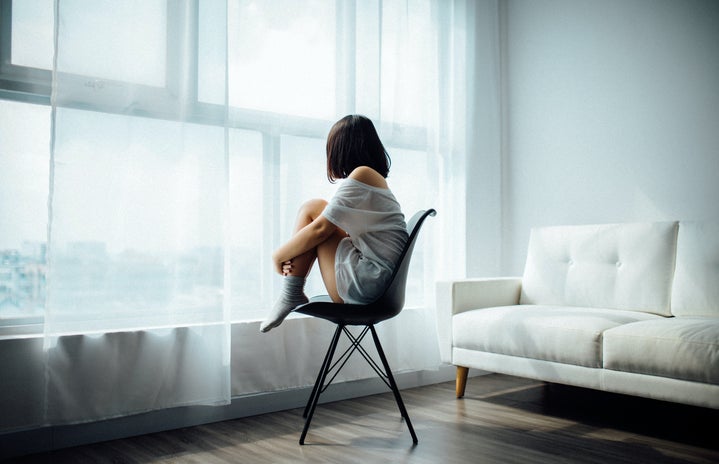If being stuck in the same apartment or dorm feels suffocating and small to you, don’t fear, you’re not alone. With COVID-19 lingering around since the start of 2020, everyone has been social-distancing, quarantining and following stay-at-home orders longer than anticipated. Trying to feel connected to others has become one of the most challenging goals in 2020. While some people have adapted well to being socially distant, those who use socializing to help the state of their mental health have suffered.
COVID-19 has brought a whole addition of stressors to our daily lives. With the pandemic, concerns for family, personal, financial and work have risen to a different level. Transitioning to distance learning, online clubs and organizations and a very different college social life experience are proving most challenging for college-aged individuals. Not to mention, students who graduated in the spring of 2020 and potentially lost their lined-up jobs for post-grad had no plans for a pandemic.
During a time that is normally filled with meeting new people, it is challenging to accept having to say at home and do your part, but it is crucial. According to the Centers for Disease Control and Prevention (CDC), symptoms of anxiety disorder, depression and COVID-19 related trauma and stressor disorder (TSRD) have been most reported by people aged 18 to 24. While COVID-19 affects people of all ages, people aged 18 to 24 years are trying to balance adjusting to online or hybrid university classes, unemployment or trying to find work while keeping a healthy mental state. Compared from April to June of 2019, April to June of 2020 had considerably increased rates of anxiety disorders and depression. It was one of the first “humps” of the pandemic. CDC panels on almost 10,000 adults show the following statistics in late June of 2020: 31 percent experienced anxiety and depression symptoms, 26 percent suffered TSRD symptoms due to COVID-19 and 11 percent seriously considered suicide.
With the pandemic still prominent, it’s important to remember to wear your masks, keep your distance, practice ways to improve your mental health and check in on others. Picking up new hobbies such as yoga, cooking, reading and journaling can be beneficial in helping to fill the days with positive activities. Here is a list of strategies that can help to prevent mental health decline:
- Check-in on a regular basis: Keeping in touch and showing you’re thinking of someone can make a bigger difference than people assume.
- The importance of a daily routine: Having a consistent plan to motivate you to get out of bed and do things throughout the day can help prevent staying in bed with the whole day passing.
- Limit news intake: While it is important to stay current and up-to-date, an overwhelming amount of news, particularly negative, can cause your brain to go into a panic frenzy mode of “what-ifs.”
For more helpful information, check out the full list from the Mayo Clinic.
If you or anyone you know is feeling overwhelmed or has thoughts of suicide or self harm, call the National Suicide Prevention Lifeline at 1-800-273-8255.
For more information, check out the CDC and the Mayo Clinic.
Want to see more HCFSU? Be sure to like us on Facebook and follow us on Instagram, Twitter and Pinterest!




